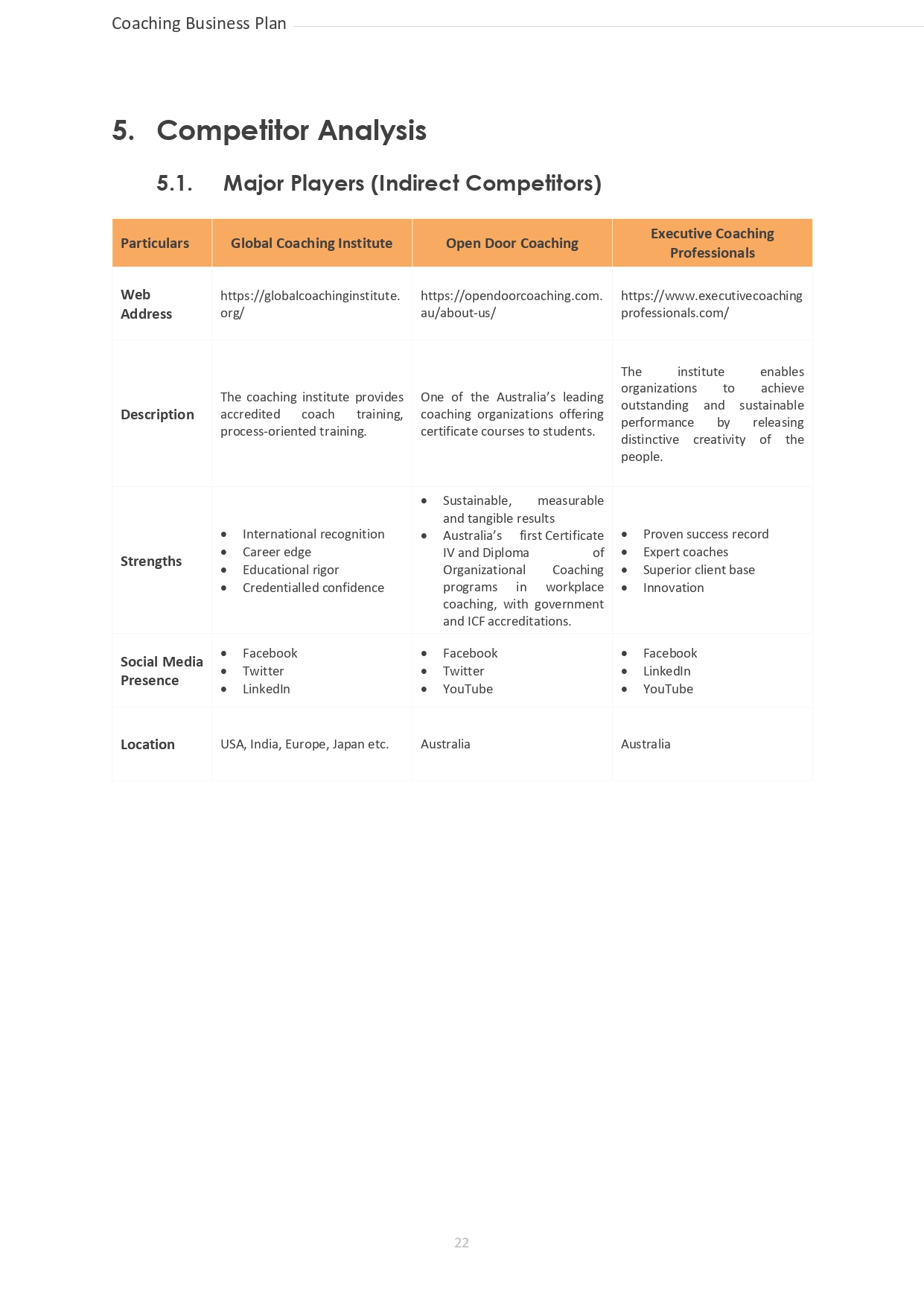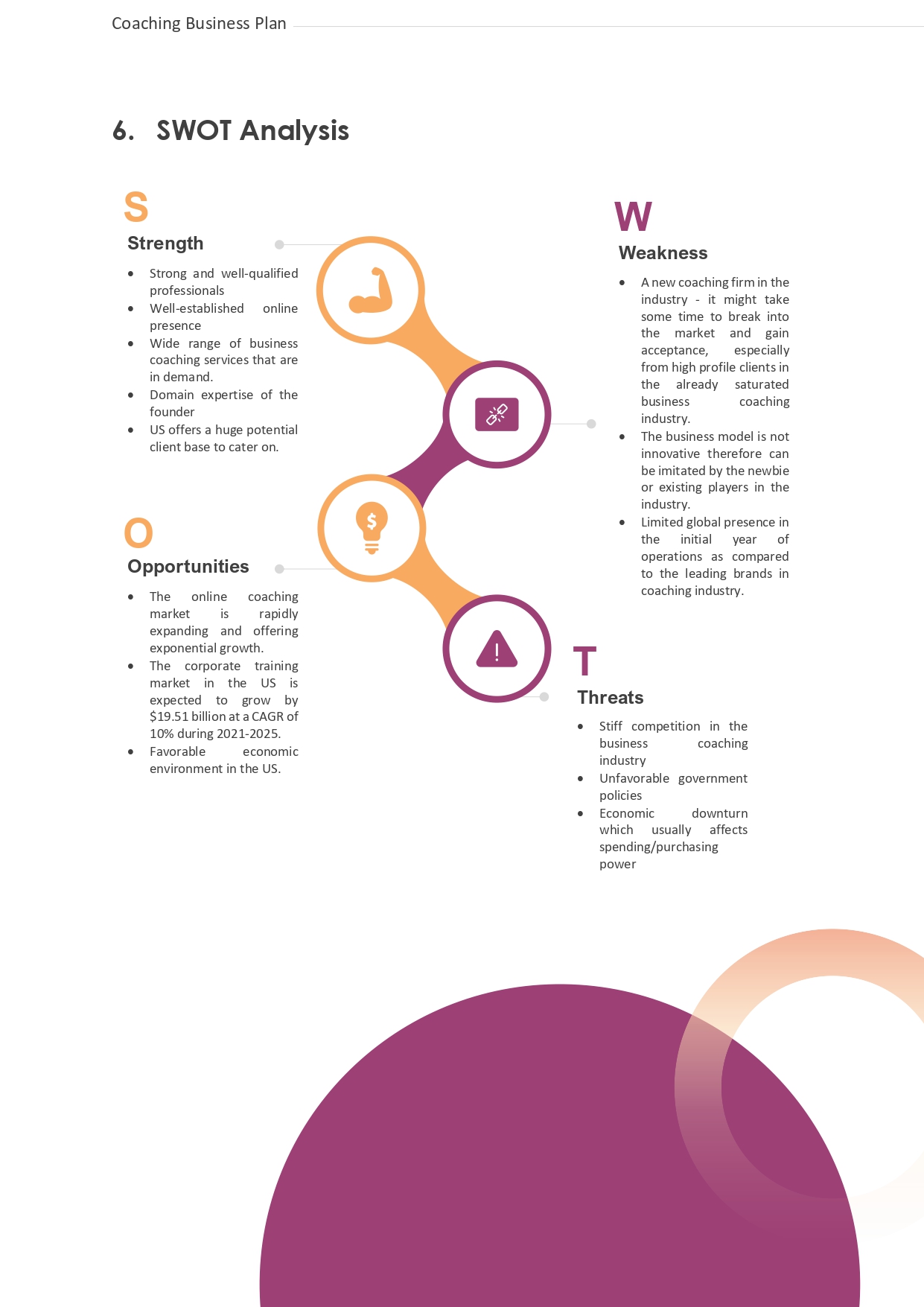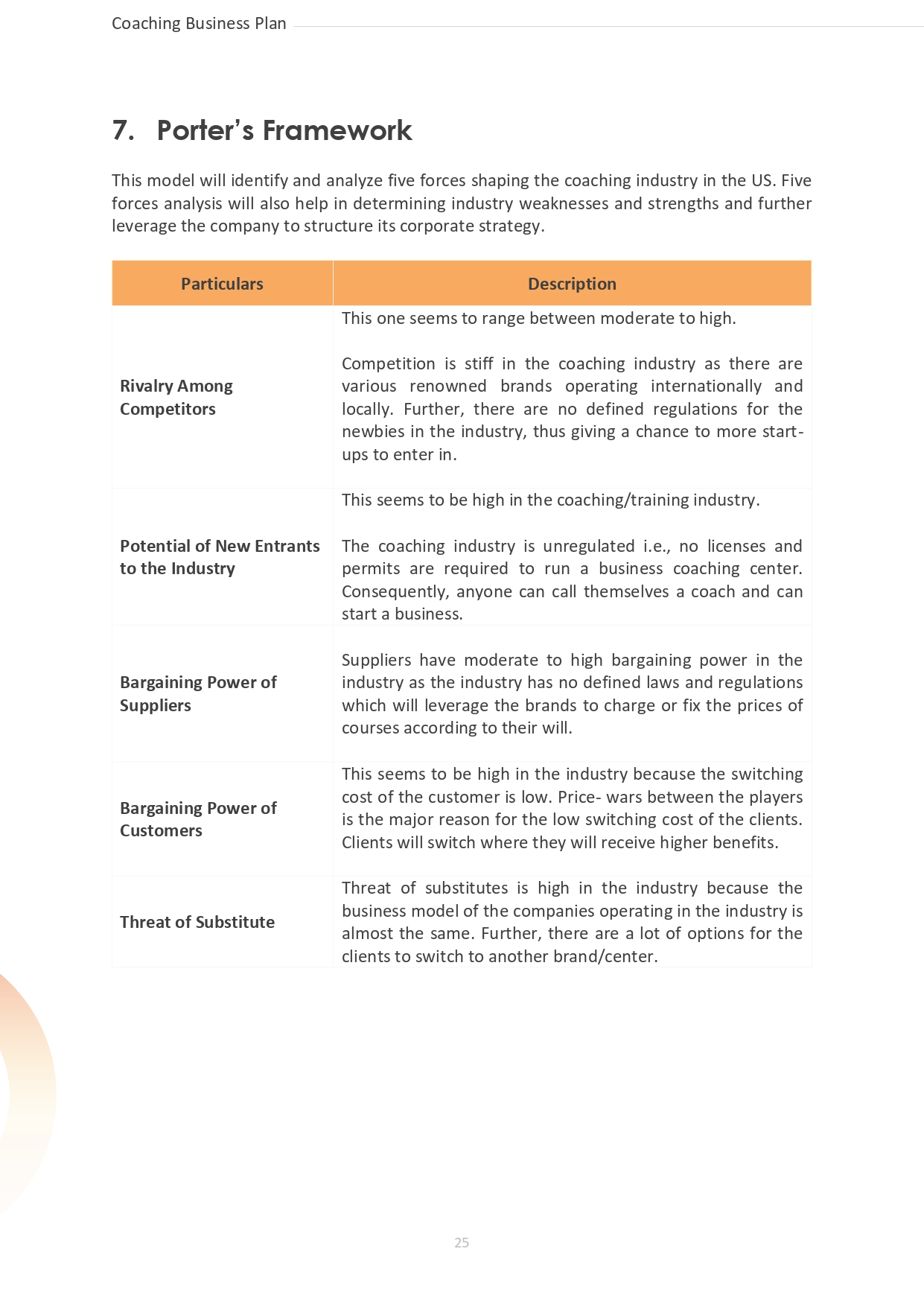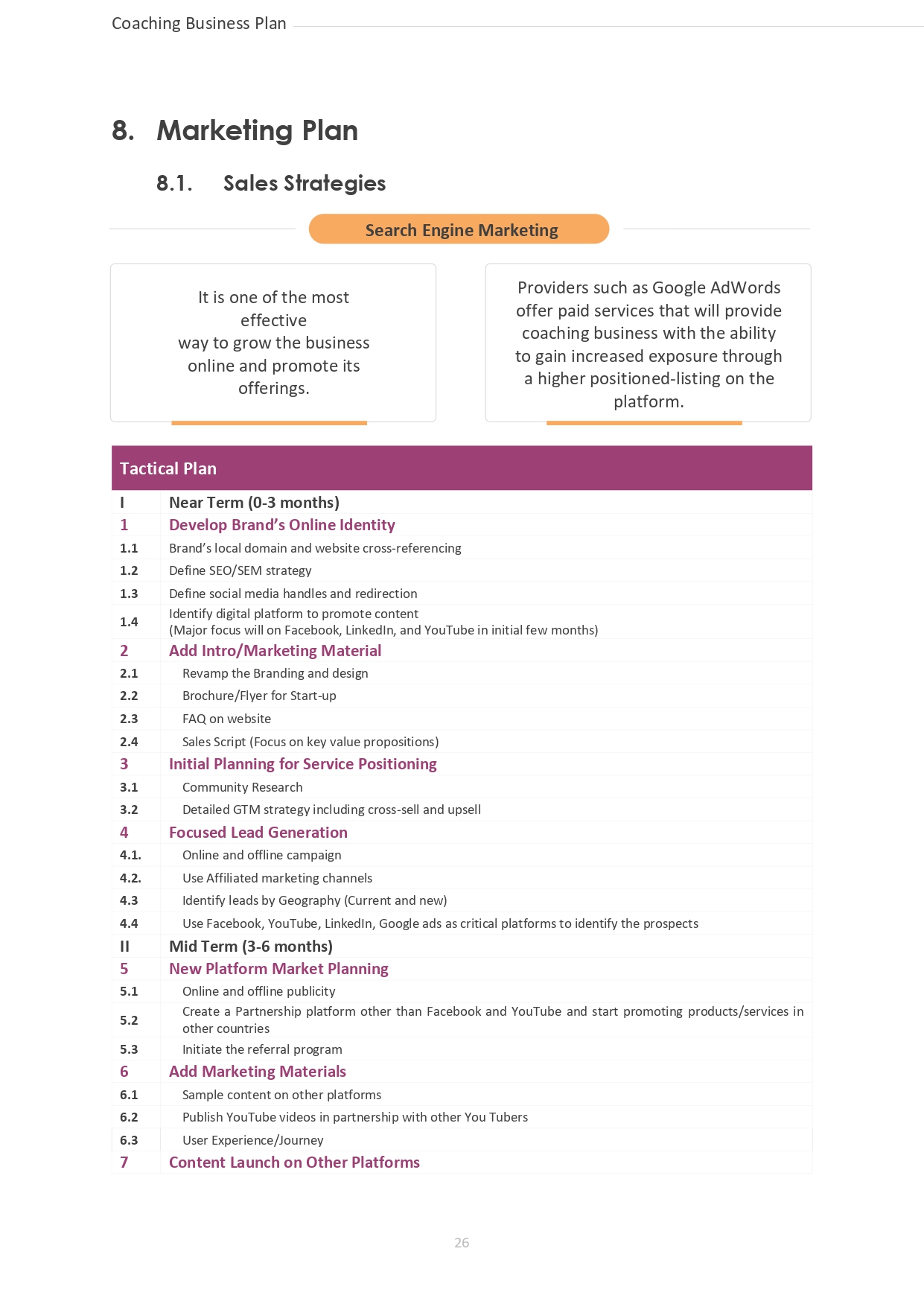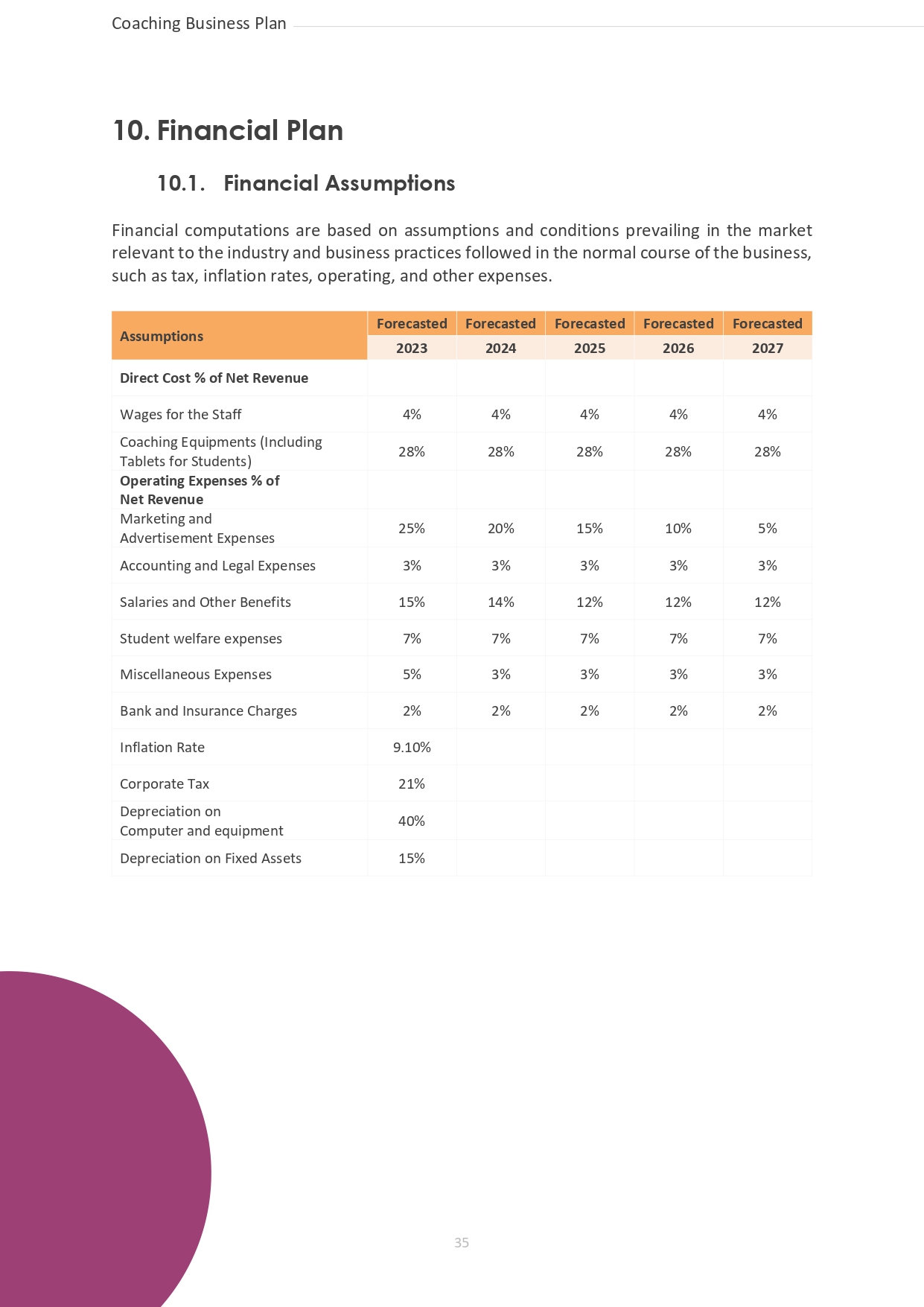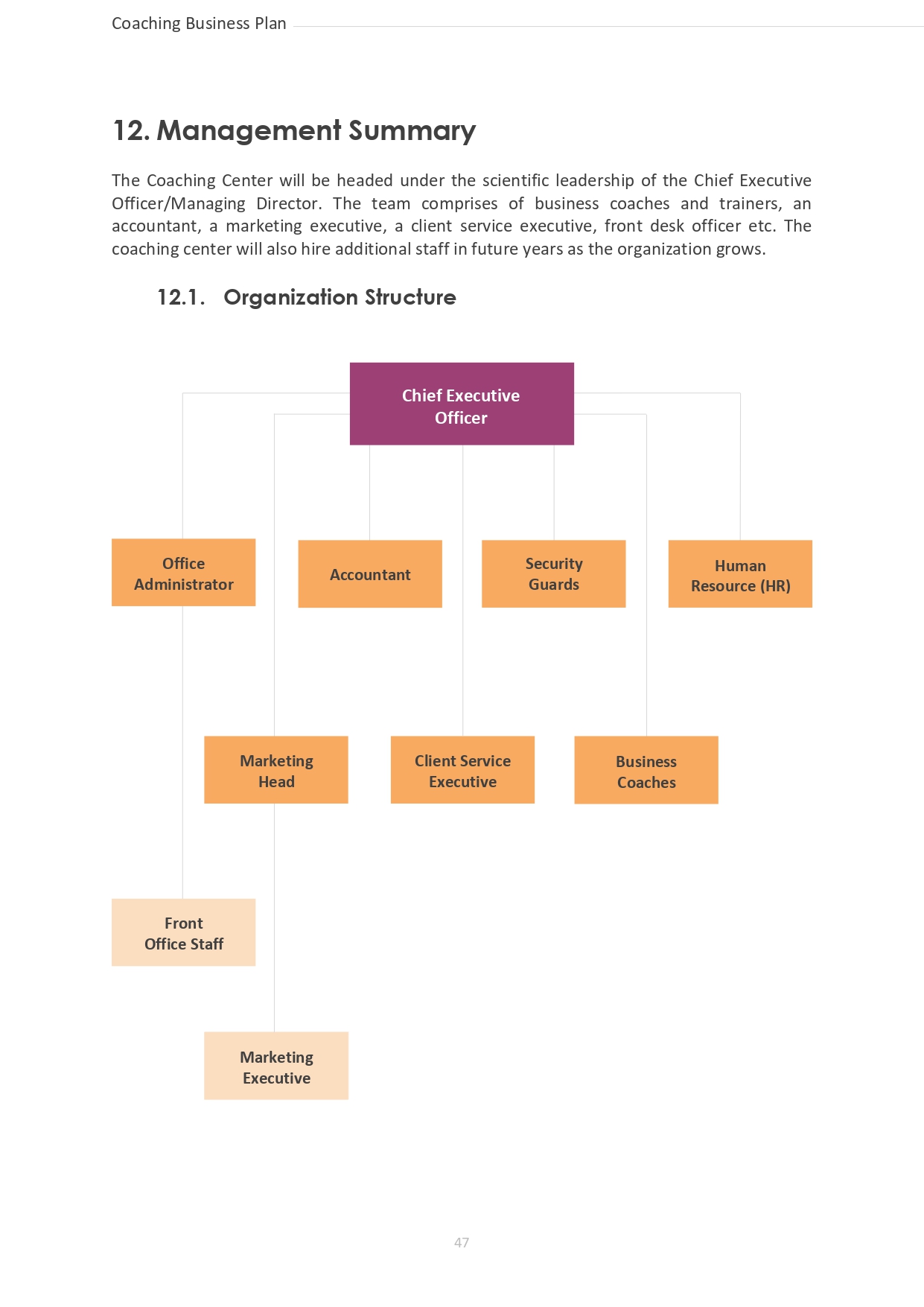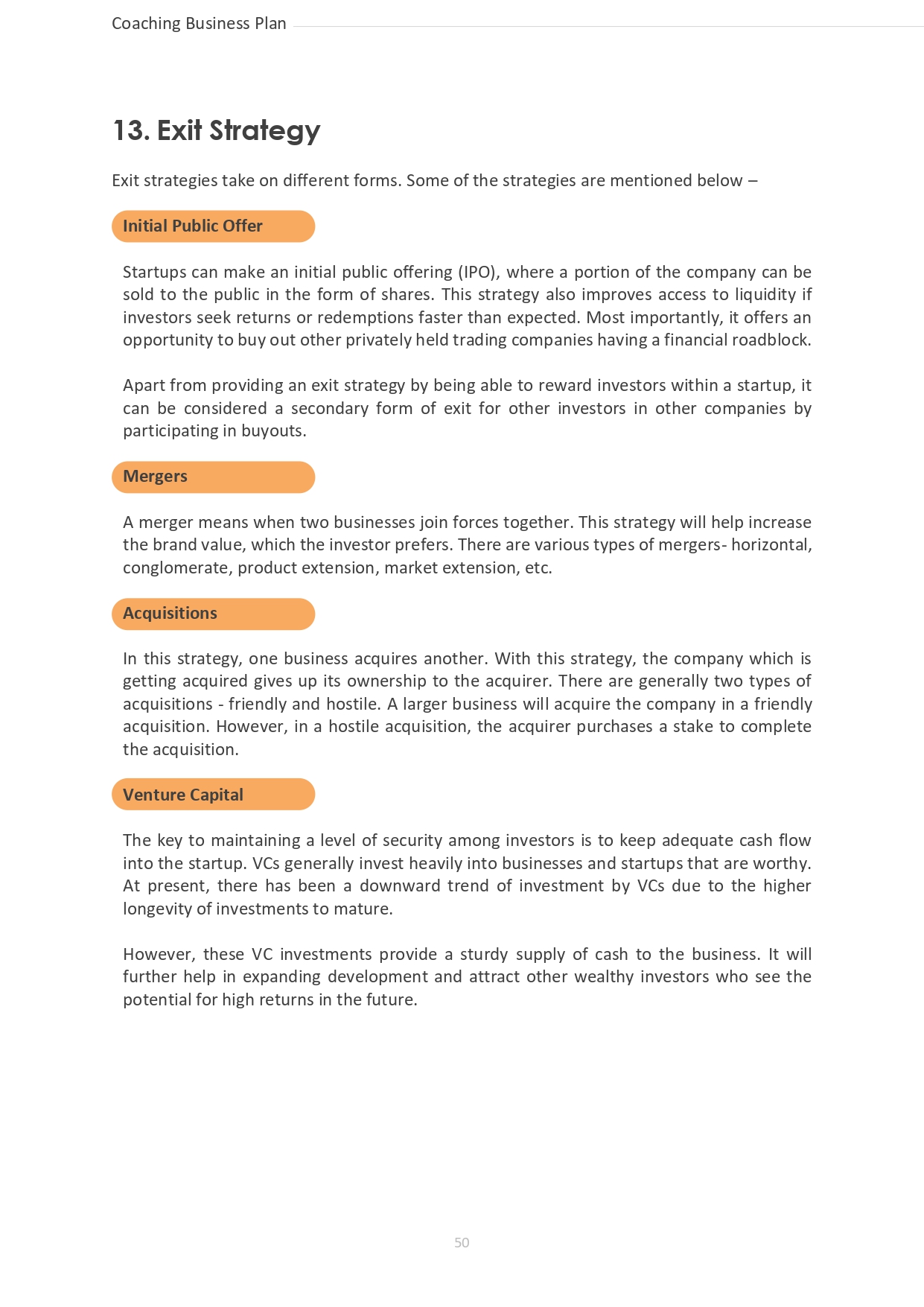Imagine a world where individuals are empowered to tap into their full potential, achieve their goals, and lead fulfilling lives. Personal and professional development has become more important in today's fast-paced and competitive landscape. That's where the coaching industry steps in, offering guidance, support, and strategies to help individuals unlock their true capabilities and soar to new heights. Let's Understand Coaching Industry Business Plan.
Welcome to a world where dreams are transformed into reality, aspirations are nurtured, and personal growth becomes a tangible and achievable goal. In this captivating journey through the coaching industry, we will explore the power of coaching, its impact on individuals and organizations, and how you can be part of this dynamic and rapidly growing field.
The possibilities are endless, from life coaching to executive coaching, career coaching to wellness coaching, the possibilities are endless. The coaching industry provides a vast range of specialized services tailored to diverse individuals' unique needs and ambitions. Whether it's overcoming obstacles, clarifying goals, enhancing leadership skills, or finding work-life balance, coaching offers a personalized roadmap for success.
For those intrigued by the idea of starting a coaching business but uncertain about the process, this blog offers a comprehensive guide featuring 14 crucial steps. These steps are designed to assist you in crafting a standout business plan that can set you apart in the coaching industry.
Step 1: The Executive Summary
The executive summary plays a crucial role in a business plan, as it serves as an overview and snapshot of the entire document. It serves as a key tool to attract investors, make informed decisions, and communicate the essence of the business plan to various stakeholders.
Our executive summary delivers an engaging Quick Pitch that highlights the hotel business's current thriving state, the market's exponential growth, and the abundant opportunities within this industry. Through this section, readers will gain valuable insights into the immense potential of our hotel business and the promising prospects it presents.
Our Executive Summary also includes the title The Entity. This section includes the name of the coaching center, web address, and Incorporation date. Further, you should also include the target market, investment, and founder’s name.
Step 2: Company Overview
The inclusion of a company overview section in a business plan is critical as it offers a condensed summary of the business, encompassing its mission, vision, and notable accomplishments. This section serves as a valuable tool for investors and stakeholders, enabling them to swiftly grasp the fundamental aspects of the company, its objectives, and its promising prospects for achieving success.
The company overview section of our Coaching industry business plan begins by presenting our Mission & Vision Statement.
In addition, our business plan includes a comprehensive outline of our Goals and Objectives, offering readers a broader perspective on our strategic direction and desired outcomes within the competitive hotel industry.
To further enhance the attractiveness and completeness of our plan, we incorporate a start-up summary as part of the company overview. This summary highlights key elements such as the feasibility of our business model, underlying assumptions, equity considerations, and relevant projections, providing a clear and concise overview of our start-up operations.
However, emphasize key success factors and services offered is of utmost importance as it enables businesses to differentiate themselves, communicate their value, build trust, execute effective marketing strategies, and educate customers. These efforts are crucial for attracting and retaining customers, fostering business growth, and securing a strong competitive position in the market.
Step 3: Industry Analysis
The inclusion of an industry analysis section in a business plan holds immense significance as it offers a thorough comprehension of the market landscape. This analysis empowers entrepreneurs to make well-informed decisions, devise effective strategies, and maintain a competitive edge in an ever-changing business environment.
The market analysis section in a business plan is vital for understanding the market landscape, identifying target customers, evaluating competition, making informed decisions, mitigating risks, and attracting stakeholders. It serves as a foundation for developing effective strategies and maximizing the chances of success in a competitive business environment.
Market trends provide insights into the competitive landscape. By monitoring trends, businesses can assess how competitors are adapting to market changes and identify potential gaps or areas where they can differentiate themselves.
It is important to include major challenges in the industry analysis section of a business plan. However this shows that you are prepared and capable of addressing and overcoming obstacles. However by acknowledging and understanding these challenges, you can develop a more realistic and comprehensive strategy. Additionally, it is beneficial to include geographical analysis to gain insights into specific locations or regions that may impact your business.
Step 4: Customer Analysis
Customer analysis plays a crucial role in understanding the target market, identifying customer needs and preferences, gaining a competitive advantage, developing effective marketing strategies, fostering customer loyalty, and driving business growth.
Start with highlighting Target Market, for effective marketing, product customization, market segmentation, competitive advantage, and sustainable business growth.
Further, highlight Buyer Persona and Market Sizing under the customer analysis section so that you can make impactful strategies to attract target customers.
Step 5: Competitor Analysis
Competitor analysis in a business plan is essential for understanding the competitive landscape, identifying customer perceptions, setting goals, developing effective strategies, mitigating risks, and instilling investor confidence. It provides valuable insights that inform decision-making and helps businesses gain a competitive edge in the market.
Further, Major players in a business plan is crucial as it demonstrates a deep understanding of the industry landscape and competitive dynamics. It showcases market awareness and allows potential investors or partners to assess the positioning and differentiation of the business within the context of existing industry leaders.
Step 6: SWOT Analysis
A SWOT analysis in a business plan is essential for self-assessment, market understanding, strategy development, decision-making, communication, and adaptability. Further, it provides a comprehensive view of the business's internal and external factors, enabling businesses to make informed decisions and navigate the market effectively.
Step 7: Porter’s Framework
Including Porter's framework, also known as Porter's Five Forces analysis, in a coaching business plan is crucial. It allows for evaluating the competitive landscape and attractiveness of the coaching industry. Although, analysis helps assess industry competitiveness, identify competitive forces, evaluate industry attractiveness, guide strategic planning, assess risks, and communicate effectively with stakeholders. Also, by utilizing the insights gained from this analysis, a hotel can develop strong strategies and position itself for success in the dynamic and competitive coaching industry.
Step 8: Marketing Plan
A marketing plan holds a vital position in a hotel business plan as it outlines the strategies and tactics employed to promote products and services, attract customers, and generate revenue. Additionally, emphasizing sales strategies within the marketing plan is crucial for revenue generation, competitive advantage, customer acquisition and retention, effective distribution, sales team alignment, and performance measurement. By specifying tactics and approaches, the plan provides a roadmap for driving sales and achieving the hotel's financial objectives.
Promotional strategies within the marketing plan are of utmost importance in a hotel business plan. These strategies play a key role in attracting guests, increasing brand awareness, and driving revenue. Further, demonstrate the hotel's marketing approach and its dedication to effectively reaching and engaging the target audience, ultimately resulting in increased bookings, customer loyalty, and overall business success.
Also, highlight the Positioning Strategy as is vital for differentiation, targeting the right audience, creating a strong brand identity, influencing value perception, gaining a competitive advantage, ensuring consistent messaging, and driving effective marketing communication.
Furthermore, the Pricing strategies outlined in the marketing plan are essential for revenue generation, competitive positioning, value perception, demand management, targeting specific market segments, measuring promotional effectiveness, and ensuring overall profitability. Thoughtfully designing pricing strategies enables the hotel to optimize revenue, attract the right customers, and establish long-term financial sustainability.
Step 9: Operational Plan
An operational plan in a business plan for the coaching industry is crucial for clarity, resource allocation, scalability, quality control, risk management, team alignment, and compliance. However it provides a roadmap for how the coaching business will operate, ensuring smooth operations, growth, and the ability to deliver exceptional coaching services to clients.
Further, under this section, you can highlight the Business structure and Milestones.
Step 10: Financial Plan
The financial plan is an integral component of a business plan in the coaching industry. It plays a vital role in achieving financial success, attracting investors and lenders, facilitating budgeting and financial control, projecting revenue and expenses, evaluating profitability and return on investment, supporting decision-making and strategic planning, and monitoring performance and growth. However a well-developed and comprehensive financial plan is crucial for demonstrating the financial feasibility and potential of a coaching business.
Further, Key components of the financial plan that should be highlighted include financial assumptions, revenue model, cash flow projections, break-even analysis, profit and loss statement, and balance sheet. These components provide a comprehensive and detailed perspective to the users of the business plan, showcasing the financial aspects of the hotel business and its potential for success.
Step 11: Graphical Representation
Further, to give a more concise idea of the financial condition of the company you can add graphs to the business plans. The user of the business plan can easily understand and compare the data.
Step 12: Management Summary
The management summary holds significant importance within a business plan for the hotel industry. It offers a concise overview of the key individuals who will be managing the coaching institute, emphasizing their qualifications, expertise, and experience. This summary plays a vital role in establishing trust with potential investors or lenders and provides a strong foundation for a reliable financial forecast. Ultimately, a well-crafted management summary greatly enhances the overall viability and appeal of a coaching business plan.
Step 13: Exit Strategy
However, including an exit strategy in a business plan for the hotel industry is of significant importance. While entrepreneurs typically concentrate on the initial stages of launching a business, planning for the eventual exit is crucial for ensuring long-term success and financial stability. Further, it showcases foresight, strategic thinking, and a proactive approach to managing the business's lifecycle. By considering an exit strategy, entrepreneurs can position themselves for long-term success and financial stability in the hotel industry.
Step 14: Abbreviation
Including abbreviations in a business plan for the hotel industry can enhance conciseness, readability, and professionalism. So, it enables efficient communication, saves space, and showcases industry knowledge. However, it is important to use abbreviations appropriately and provide explanations or a glossary when needed to prevent any confusion.
Final Thoughts
The coaching industry business plan crafted by SlideTeam offers a comprehensive and well-organized blueprint for achieving success in the coaching sector. However, the plan lays out a strategic framework for establishing and operating a profitable coaching business, meeting the unique requirements of clients and capitalizing on revenue-generating opportunities. Although for any additional support, please reach out to our customer support team.



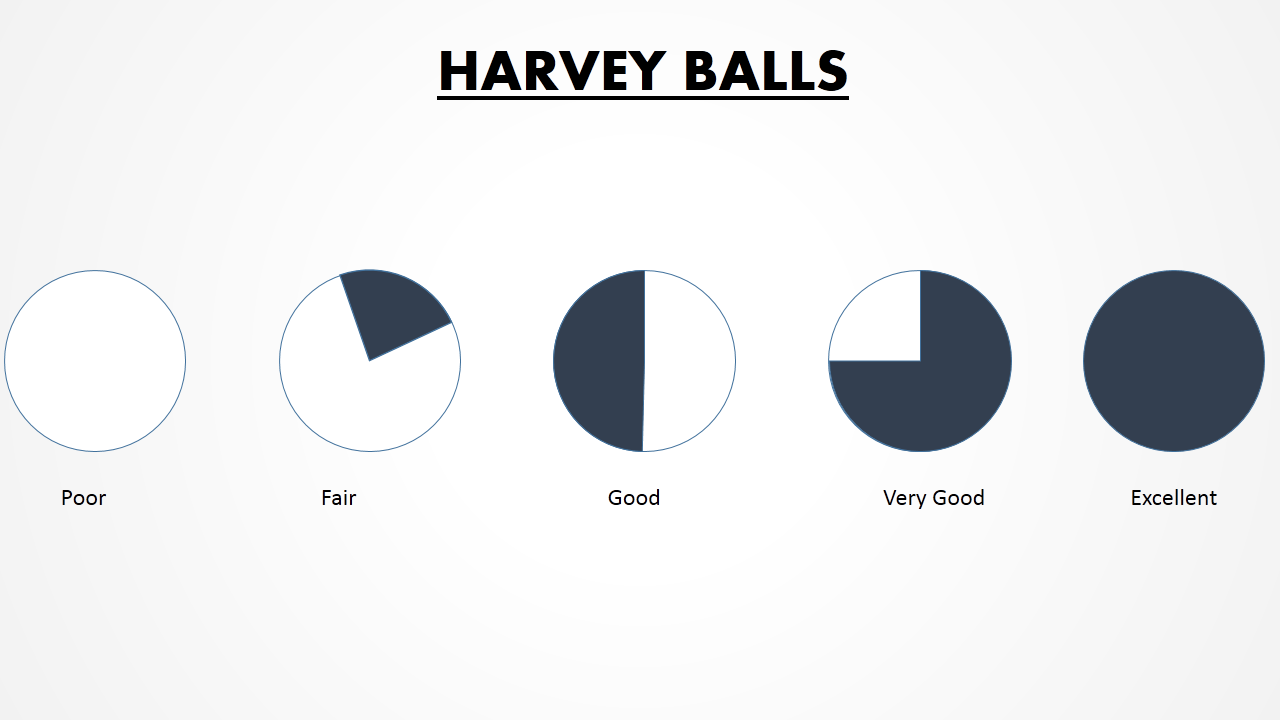

 Customer Reviews
Customer Reviews





